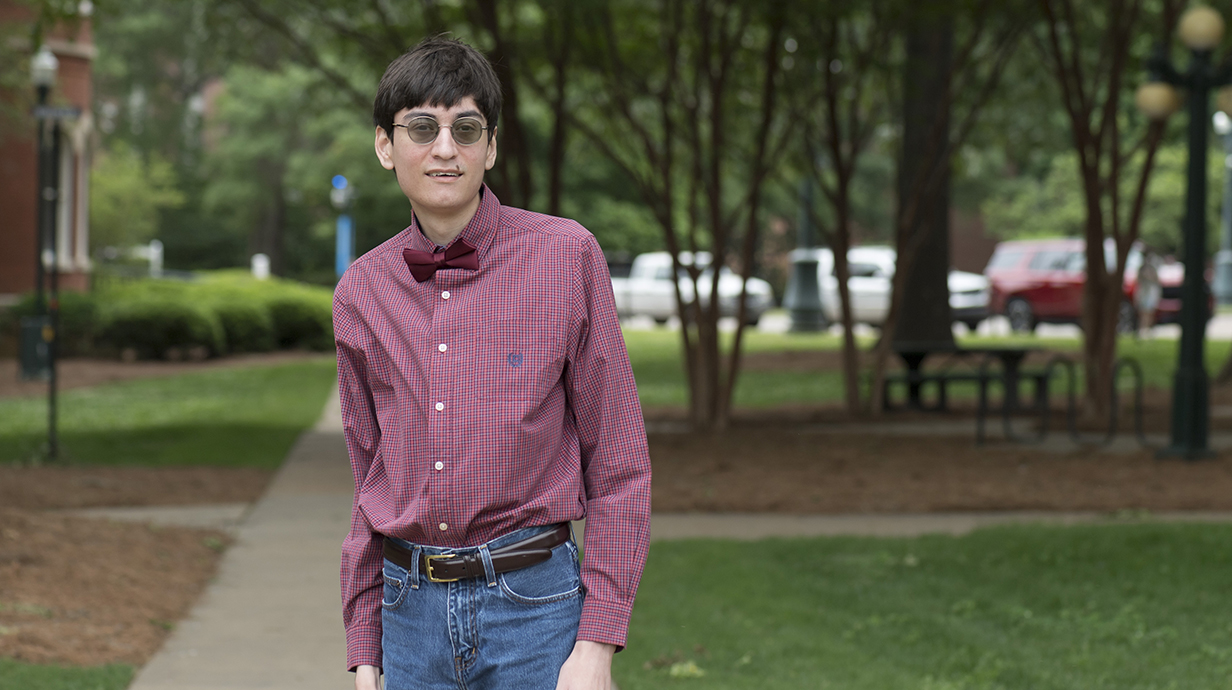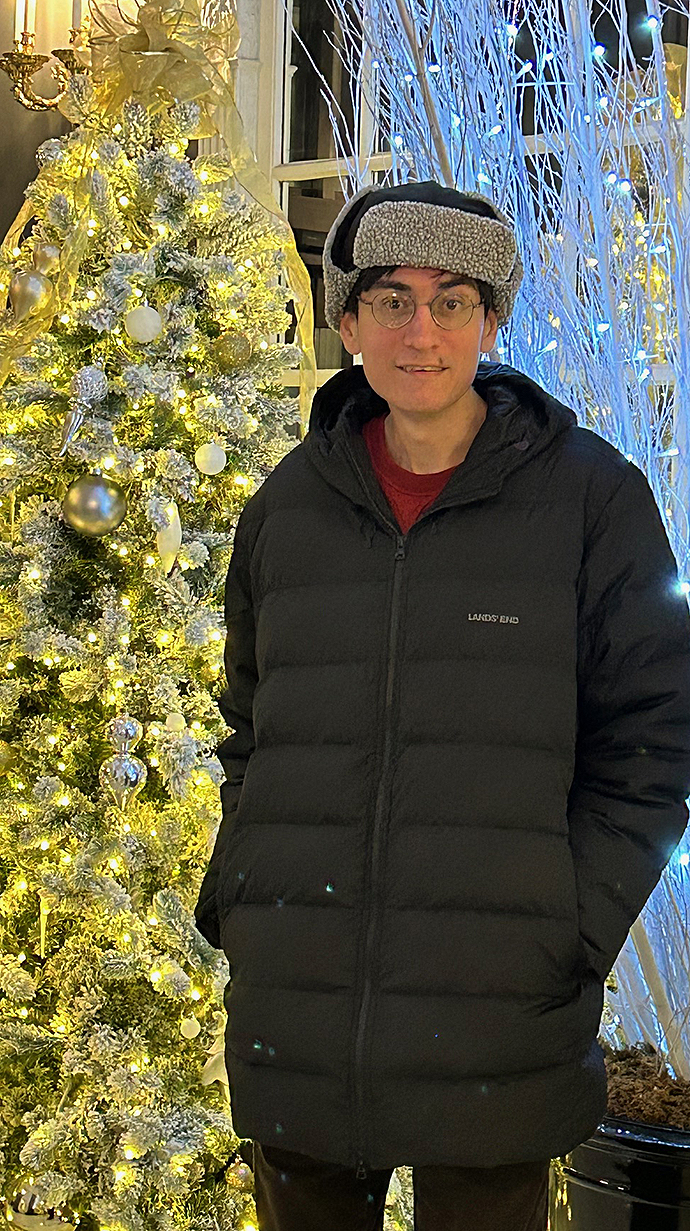JTC 24: Adapting and Excelling
Michael Neal finds passion for computational chemistry during COVID-19

This story is part of the 2024 Journey to Commencement series, which celebrates the pinnacle of the academic year by highlighting University of Mississippi students and their outstanding academic and personal journeys from college student to college graduate.
It was an unconventional entry into computational chemistry, but Michael Neal took it in stride.
When the COVID-19 pandemic upended many graduate student researchers' plans, the University of Mississippi doctoral student agreed to shift his research focus away from the lab – embracing a new world of molecular modeling and simulations.
"I hit the dirt running, and now the theme for all my research at the university has been a computational approach," said Neal, a Cleveland native. "I had not yet experienced that work while I was an undergrad, but once I dove in, I really enjoyed it."

That flexibility and intellectual curiosity is garnering Neal recognition as he approaches his graduation in May.
Natural products have piqued Neal's interest from a young age. This led him to enroll in the university's pharmacognosy doctoral program in January 2020 after completing undergraduate degrees in biology and chemistry at Delta State University.
"I've always been interested in gardening; my aunt helped me foster that as a very young child," he said. "I took some courses such as plant anatomy during undergrad, and I enjoyed chemistry at Delta State.
"I started looking for interesting degrees, and pharmacognosy is the study of natural products where, of course, one of our sources is plants."
While he initially planned to do lab-based research, his mentors at the National Center for Natural Products Research suggested computational work due to COVID-19 restrictions.
"Even in the midst of all the uncertainty and confusion, Michael had a lot of energy and enthusiasm," said Amar Chittiboyina, NCNPR assistant director. "We both agreed that we could work on computational chemistry because you don't have to be physically in the lab."

Since coming to Ole Miss, Michael Neal has earned the respect of colleagues at the National Center for Natural Products Research, where he has conducted computational chemistry research while pursuing his doctorate. Submitted photo
Four years later, Neal has published three research articles in high-impact scientific journals, one of which was selected for a soon-to-be published special issue of Planta Medica.
"His research has been looking into tools that can help understand science more in-depth," said Ikhlas Khan, NCNPR director and Neal's mentor. "He has conducted good science and learned new techniques to understand the complexities of natural science.
"We're proud that his experience working at the NCNPR has allowed him to develop his expertise in this area."
For Neal's dissertation, "In Silico Approaches of Pharmacognosy to Resolve Complex Natural Products Issues," he used computer modeling and simulations to better understand natural product molecules.
"For example, one of the three projects I describe in my dissertation involves compounds in lavender essential oil," Neal said. "We evaluated its ability to influence receptors in the body that deal with anxiety, mood, and sleep or circadian rhythm.
"We found that it does impact those receptors and potentially provide relief to those that take it."
By using this computer-based research, Neal aims to make discoveries that could lead to new therapeutic drugs derived from nature.
After graduation, he hopes to continue working at the natural products center as a postdoctoral researcher focusing on artificial intelligence.
"My long-term goal is to incorporate AI and machine learning into my computational work," Neal said. "We're looking at AI in terms of image classification – we can take several hundred microscopic images of plant parts to determine what species they are. There's a lot of potential."
Both Khan and Chittiboyina praised Neal's character in addition to his research competence.
"He's a good human – respectful, accommodating, well-articulated and balanced," Chittiboyina said. "His parents should be very proud of him."
By
Erin Garrett, University Marketing and Communications
Campus
Published
May 09, 2024
